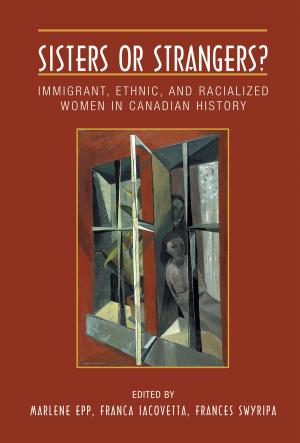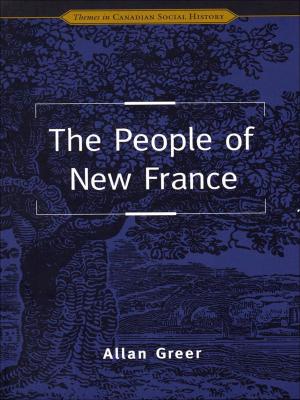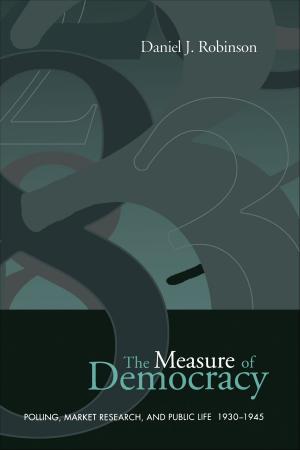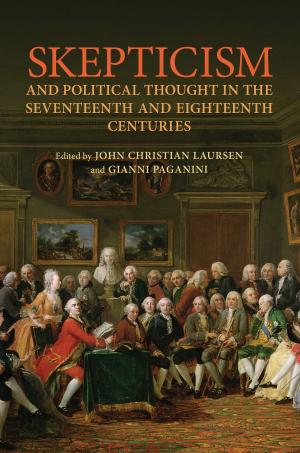Edward Blake, Irish Nationalist
A Canadian Statesman in Irish Politics 1892-1907
Nonfiction, History, Ireland, Social & Cultural Studies, Political Science, International, Biography & Memoir, Political| Author: | Margaret A. Banks | ISBN: | 9781442633254 |
| Publisher: | University of Toronto Press, Scholarly Publishing Division | Publication: | December 15, 1957 |
| Imprint: | Language: | English |
| Author: | Margaret A. Banks |
| ISBN: | 9781442633254 |
| Publisher: | University of Toronto Press, Scholarly Publishing Division |
| Publication: | December 15, 1957 |
| Imprint: | |
| Language: | English |
In 1892, Edward Blake, ex-Premier of Ontario and former leader of the Liberal party in the Canadian House of Common, was invited by the Irish parliamentary party to stand for election in the British Parliament. This surprising invitation grew out of the conflicts of the Irish “Home Rule” controversy, then a critical issue in British politics. When Blake abandoned the Canadian political scene he had just severed connections with the Liberal party, which he had served as Minister of justice in the only federal Liberal administration down to 1896, and as Leader of the Opposition from 1880 to 1887. Irish Home Rule was a cause which engaged the sympathies of Liberals all over the British Empire, and although Blake intended to return permanently to Canada, he remained a member of the British Parliament, devoting ceaseless efforts to the Irish interest, until illness forced his retirement in 1907.
Up to the present time, little attention has been given by either Irish or Canadian historians to the Irish career of Edward Blake. It spanned the years of failure and frustration which stretched between the spectacular period of Gladstone and Parnell to the excitements of the third Home Rule Bill, the Ulster resistance, and the Sinn Fein movement. Although Blake declined much part in parliamentary debate during these arid years, he played a vital and unappreciated role in the inner discussions and struggles of the Irish Nationalist movement. Blake was not only a statesman of blameless reputation, but a constitutional authority whose superior abilities were lying unused in Canada after Confederation. He brought to the Irish party a cool judgment, and a consciousness of the role of statesmanship in politics, which won the highest respect of all its leaders, including McCarthy and Redmond.
Dr. Banks has made a searching assessment of Blake’s historical position: the reason why, in the eyes of his contemporaries, he never attained the political status which he merited, and the basis for the enormous respect which he was accorded by all who worked with him in the inner circles of the party. It is an informative account, based on careful research, of an enigmatic figure in Canadian politics, whose career encountered unequalled frustrations and discouragement, but whom Sir Wilfrid Laurier unhesitatingly termed “the most powerful intellectual force in Canadian political history.” Of interest to everyone concerned with Irish and Imperial problems, it will merit the attention of political analysts and historians alike.
In 1892, Edward Blake, ex-Premier of Ontario and former leader of the Liberal party in the Canadian House of Common, was invited by the Irish parliamentary party to stand for election in the British Parliament. This surprising invitation grew out of the conflicts of the Irish “Home Rule” controversy, then a critical issue in British politics. When Blake abandoned the Canadian political scene he had just severed connections with the Liberal party, which he had served as Minister of justice in the only federal Liberal administration down to 1896, and as Leader of the Opposition from 1880 to 1887. Irish Home Rule was a cause which engaged the sympathies of Liberals all over the British Empire, and although Blake intended to return permanently to Canada, he remained a member of the British Parliament, devoting ceaseless efforts to the Irish interest, until illness forced his retirement in 1907.
Up to the present time, little attention has been given by either Irish or Canadian historians to the Irish career of Edward Blake. It spanned the years of failure and frustration which stretched between the spectacular period of Gladstone and Parnell to the excitements of the third Home Rule Bill, the Ulster resistance, and the Sinn Fein movement. Although Blake declined much part in parliamentary debate during these arid years, he played a vital and unappreciated role in the inner discussions and struggles of the Irish Nationalist movement. Blake was not only a statesman of blameless reputation, but a constitutional authority whose superior abilities were lying unused in Canada after Confederation. He brought to the Irish party a cool judgment, and a consciousness of the role of statesmanship in politics, which won the highest respect of all its leaders, including McCarthy and Redmond.
Dr. Banks has made a searching assessment of Blake’s historical position: the reason why, in the eyes of his contemporaries, he never attained the political status which he merited, and the basis for the enormous respect which he was accorded by all who worked with him in the inner circles of the party. It is an informative account, based on careful research, of an enigmatic figure in Canadian politics, whose career encountered unequalled frustrations and discouragement, but whom Sir Wilfrid Laurier unhesitatingly termed “the most powerful intellectual force in Canadian political history.” Of interest to everyone concerned with Irish and Imperial problems, it will merit the attention of political analysts and historians alike.















